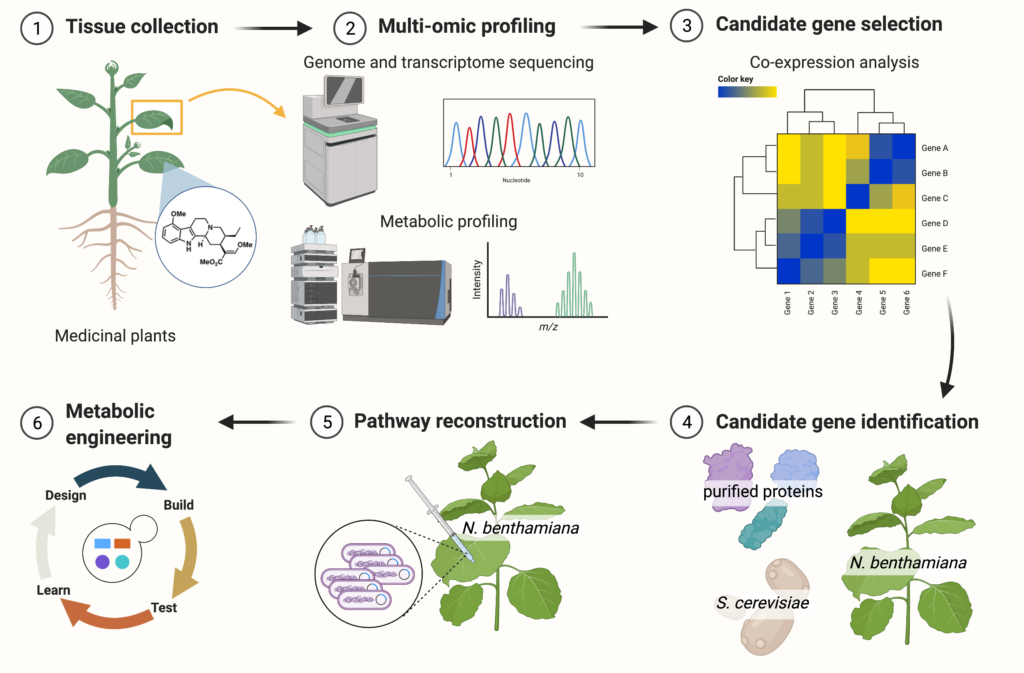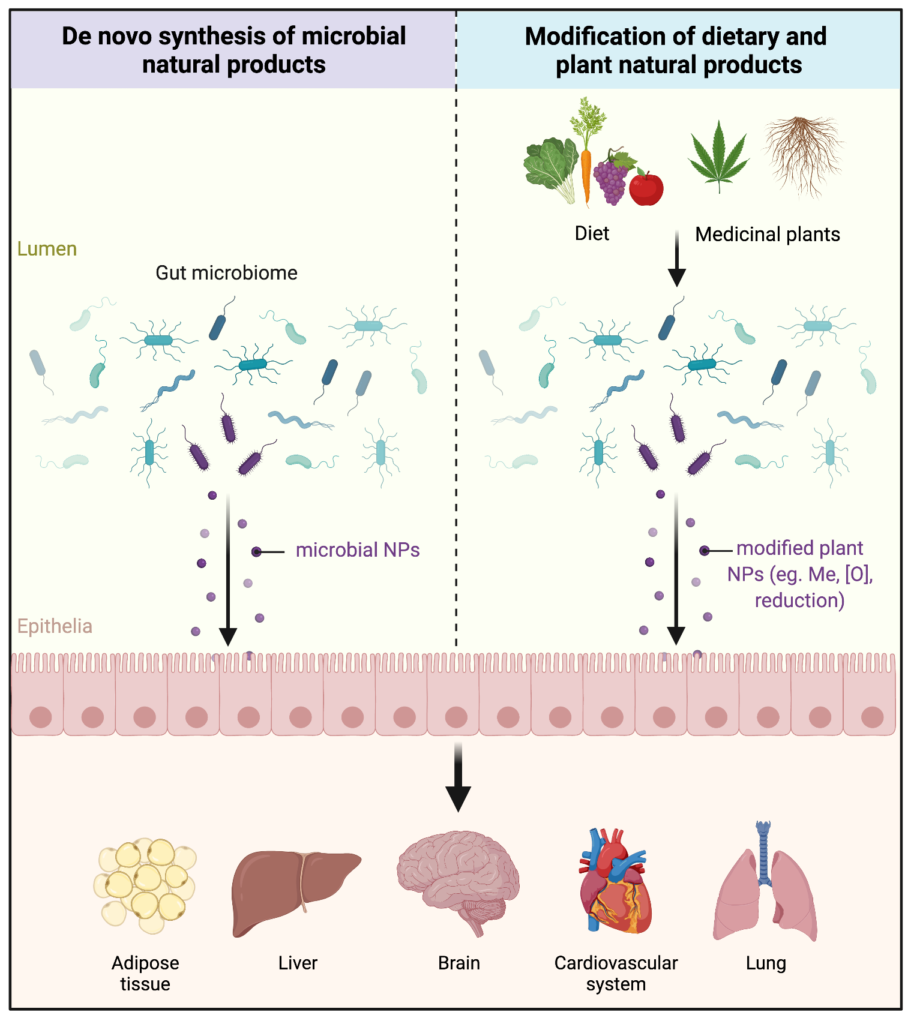RESEARCH
1. Medicinal Plant-Derived Natural Products

Medicinal plants are a rich source of highly complex and diverse natural products that have been applied in disease treatment since ancient times. While hundreds and thousands of plant natural products exist in the literature, their biosynthetic pathways are often not fully characterized, hindering our understanding of their physiological and ecology roles and limiting our engineering efforts to produce these molecules for therapeutic purposes. We will combine multi-omic and biochemical approaches to elucidate and characterize biosynthetic pathways for the production of bioactive and high-value natural products in medicinal plants, with a particular focus on psychoactive plants and traditional Chinese herbs. Identifying these pathways will lead to a better understanding of chemical logic in plant natural product biosynthesis and enable the reconstruction of pathways in heterologous microbial and plant hosts for robust production.
2. Human Microbiome-Derived Natural Products

The human body harbors trillions of commensal and pathogenic microorganisms that play a vital role in health and disease. Recent advances in DNA sequencing have accelerated our understanding of microbial composition under disease states. However, the underlying molecular mechanisms remained elusive.
The human microbiome encodes thousands of biosynthetic gene clusters of natural products that affect disease development and progression. We previously demonstrated that certain Escherichia coli strains in the gut produce a genotoxic secondary metabolite that can damage host cell DNA and promote the progression of colorectal cancer. We will further delineate the contributions of microbiome-derived natural products to human health by determining the chemical identities, biosynthetic pathways, and biological roles of additional microbial secondary metabolites. These studies will lay the groundwork for therapeutically targeting the biosynthetic pathways.
In addition to de novo synthesizing microbial natural products, gut microbial enzymes can chemically modify the plant natural products in our daily diet and in herbal medicines popular in east Asia. However, it remains elusive how the transformation occurs and its consequences to the gut microbial community and the host. We will systemically investigate which microbes and enzymes are responsible for the chemical transformation of ingested plant natural products. We will also integrate genetic approaches and sequencing technology to examine the roles of modified metabolites in bacterial community composition. Understanding the molecular and genetic basis of microbiome-mediated modulation of dietary and herbal metabolites will enable engineering efforts to promote nutrient uptake and therapeutic efficacy.
